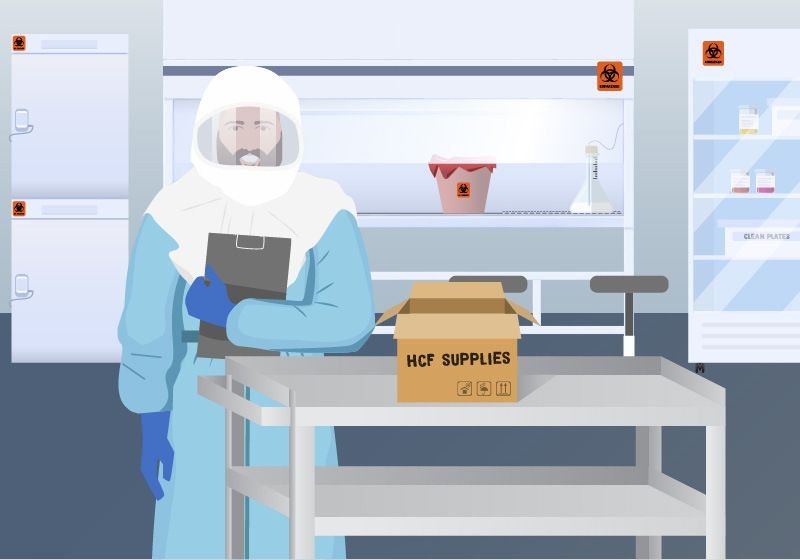Scientists study pathogens that require added levels of security and researcher protection in dedicated laboratories, or high-containment facilities (HCFs), that involve extra coordination between research teams, biosafety officers, and medical staff. Ludovic Desvignes oversees these labs as the high-containment laboratories director at New York University Langone Health (NYULH).
What do you do in this position?
Ludovic Desvignes had an unexpected change in his career plans that led him to become the high-containment laboratories director at New York University Langone Health.
John Abbott
I support the ongoing research in our biosafety level 3 (BSL-3) laboratory, our germ-free animal facility, and our mosquito insectary by recruiting and training staff and other personnel, obtaining and maintaining the equipment for those labs, and developing online training modules. Because of the extra protection measures needed for entry into the BSL-3 lab, I’m also the person who fixes and replaces a lot of equipment. Some of my other responsibilities are akin to a liaison role, where I advise and communicate information regarding BSL-3 research between our researchers, biosafety officers, and medical staff. I often consult on researchers’ standard operating procedures to help them write their protocols involving these types of pathogens. Additionally, I’m developing a HCF core to facilitate high-containment research for groups that don’t have the means to conduct it themselves.
How did you come into this career?
While I was a postdoctoral researcher in Joel Ernst’s lab at NYULH, a lab manager position opened up. Since this was a more stable and better-paying job, I spoke to my advisor about taking on the role, and I transitioned into the position of a research scientist and lab manager for this group. Ernst was the de facto coordinator for NYULH’s HCF at the time, so I became the manager of that facility as well. Along the way, I realized that I liked helping scientists do research more than doing it myself, but at the time, I still intended to be a principal investigator; I secured a non-tenure track faculty position at NYULH and began teaching and submitting grants with the plan to start my own independent lab. Then, Hurricane Sandy hit, and I lost all of the mice that my research was centered around, so that option stagnated. I focused on teaching and managing the HCF. When Ernst left the institution, NYULH offered me a position to stay as the HCF director, and I accepted.
What advice do you have for trainees interested in this position?
You have a lot more skills than those that you use at the bench, so find what you’re good at and enjoy doing and tap into that. I was always an organized person but taking on the duties of a lab manager familiarized me with the different aspects involved in running a lab, such as stocking and ordering materials, overseeing the animal colony, and writing the research protocols. I also learned how to manage interpersonal relationships, which I now do a lot of in this position. Even if you pursue the faculty track, having these experiences and skills will prepare you for the administrative responsibilities, such as serving on various oversight committees, that are required of principal investigators. However, if you change your mind or something unexpected happens, like it did in my case, these experiences can be the off-ramps that guide you into a new career.
This interview has been edited for length and clarity.


